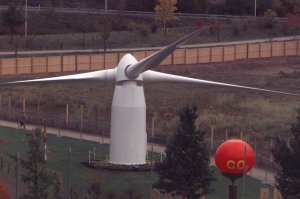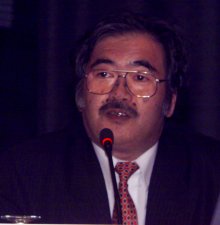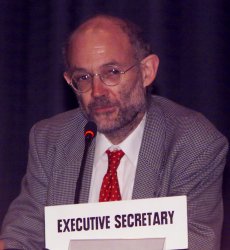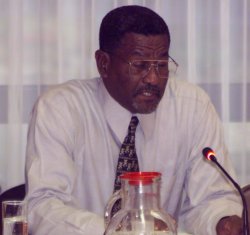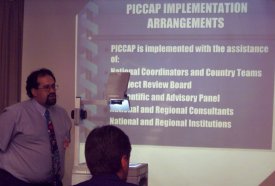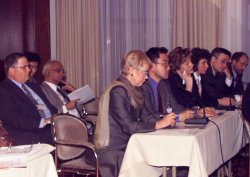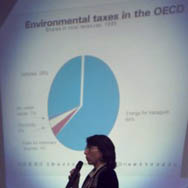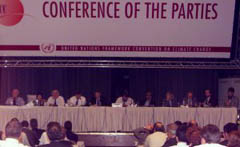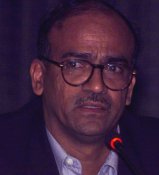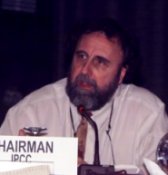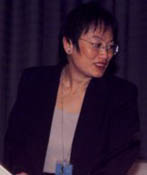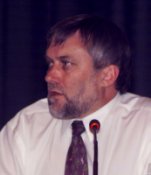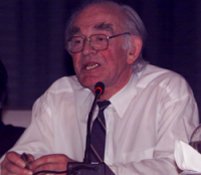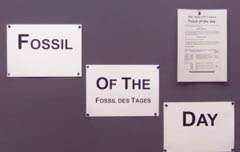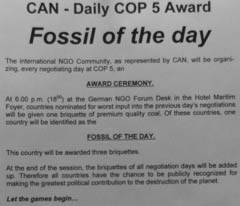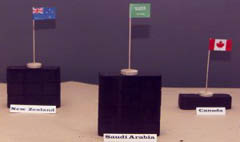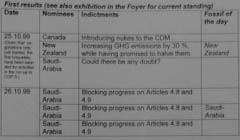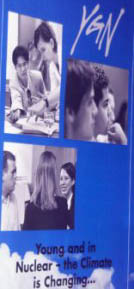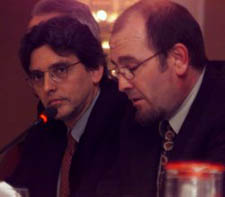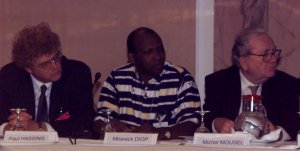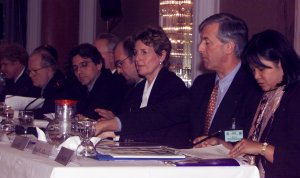 |
|
|||||||||||||||||||||||||||||||||||||||||
 Tuesday,
26 October
Tuesday,
26 October |
||||||||||||||||||||||||||||||||||||||||||
|
|
||||||||||||||||||||||||||||||||||||||||||
|
Wind energy can provide ten per cent of the world's electricity requirements by 2020, create 1.7 million jobs and reduce global carbon dioxide emissions by more than 10 billion tonnes, according to findings in an international report commissioned by Greenpeace, the European Wind Energy Association and the Forum for Energy and Development. Right: an exhibit outside the conference center. The report, 'Windforce 10: a blueprint to achieve 10 per cent of the world's electricity from wind power by 2020", demonstrates that a total of 1.2 million Megawatts (MW) of wind power can be installed worldwide by 2020, producing more than the total electricity consumption in Europe today. In Europe alone, one fifth of this total capacity would be installed, creating a quarter of a million jobs.
E-mail:
kmallon@ams.greenpeace.org.
IPCC National Greenhouse Gas Inventories Programme Sal Emmanuel (e-mail: sal.emmanuel@iges.or.jp), Head of the Technical Support Unit at the IPCC's National Greenhouse Gas Inventories Programme provided a progress report on the IPCC's work instigated at SBSTA-8 in 1998. The IPCC was requested to give high priority to completing its work on uncertainty, as well as to prepare a report on good practice in inventory management and to submit a report on these issues by the SBSTA session at COP-5. An annotated draft outline of the IPCC Report on Good Practice in National Inventory Preparation including Managing Uncertainty was made available at the side event. Future work will include the preparation of a draft report by 17 December 1999, proceeding to government/expert review, followed by a wrap-up meeting in Australia in February 2000. The final report will be available in May 2000 in time for consideration at SBSTA-12 and COP-6. The inauguration of the Technical Support Unit (TSU) to the IPCC Task Force on National Greenhouse Gas Inventories took place on Saturday 25 September 1999 in Tokyo, Japan. The TSU at the Institute for Global Environmental Strategies (IGES) in Hayama, Japan is now officially operative and takes over as the main point of contact for the IPCC National Greenhouse Gas Inventories Programme (IPCC NGGIP). The Programme officers
are Sal Emmanuel, Andrew
Buendia, Robert Hoppaus, Jeroen
Meijer and Kiyoto Tanabe.
OECD Launches new publications on climate change At a side event chaired by the OECD's Joke Waller Hunter, the authors of two new publications on climate change presented their findings.
Useful links and contacts at the OECD:
We present RealAudio recordings from a number of speakers and subsequent discussion sessions
Participants at a side event convened by HELIO international discussed a report, "Criteria and Indicators for Appraising Clean Development Mechanism (CDM) Projects." The report contains a set of eligibility criteria and indicators for the appraisal and evaluation of CDM project proposals. Proposed eligibility criteria include appropriate technologies, baselines, supplementarity and measures of sustainable development and lists project crediting and financial additionality criteria. The report also outlines a range of indicators for monitoring during a project's life cycle, including sustainable development indicators. Eight indicators grouped according to four pillars of sustainable development are outlined. An additional set of indicators for monitoring net emissions of greenhouse gases are also listed. Emilio La Rovere (left) and Steve Thorne, HELIO International, co-authors of the report. For
more information visit http://www.globenet.org/helio
|
||||||||||||||||||||||||||||||||||||||||||
| © 1999, Earth Negotiations Bulletin. All rights reserved. |
|
|||||||||||||||||||||||||||||||||||||||||


